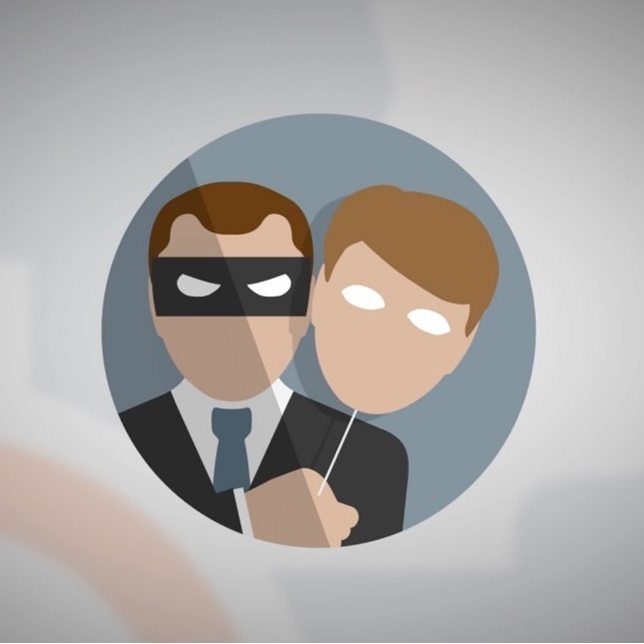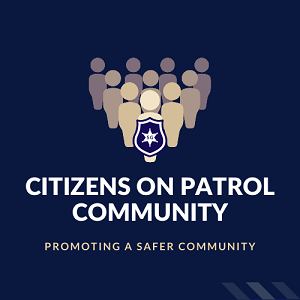GOVERNMENT OFFICIALS IMPERSONATION SCAMs
CITIZENS ON PATROL COMMUNITY SG
GOVERNMENT OFFICIALS IMPERSONATION SCAMS
PREVENTION TIPS
If you suspect that you are a victim of scam,
you are not alone.
If you wish to speak to someone,
send us a message under our Facebook page for a quicker response at:
https://www.facebook.com/COPSGVolunteers
Rest assured that your identity and shared details will be kept strictly private and confidential.
2024: Crimewatch Episode 8
GOVERNMENT OFFICIAL IMPERSONATION SCAM
CREDIT: SINGAPORE POLICE FORCE
What aRE GOVERNMENT OFFICIALS IMPERSONATION SCAMS
One of the most persistent scams is the government officials impersonation scam. Fraudsters may call, text, or email, pretending to be a police officer, court officer, or other government representative. Their goal? To pressure victims into giving money, valuables, or personal information.
Let’s explore how these scams operate and how to protect
yourself and your family.
A government impersonation scam occurs when
scammers pretend to be government officials to gain trust and extract money or
information. They often use convincing tactics such as:
- Pretending to be from the Singapore Police Force (SPF), Ministry of Home Affairs, CPF, IRAS, or MOM.
- Threatening legal action or arrest unless you “cooperate.”
- Sending fake court documents or warrants.
- Requesting cash, jewellery, or cryptocurrencies for “investigations.”
These methods are becoming increasingly sophisticated in 2025, making awareness crucial.
how THESE SCAMS happen
When the unsuspecting victim receives an unsolicited call, email, or text claiming to be a government official — a typical government impersonation scam.
According to the Singapore Police, government impersonation scams have risen sharply in 2025, making them one of the top scam types.
Understanding why people fall for these scams is important. Scammers often leverage fear, urgency, and authority to manipulate victims, threatening arrest or legal consequences to create panic. They may also instill a sense of obligation or guilt, pressuring individuals to act immediately. Recognizing these psychological triggers helps one avoid falling prey to a government impersonation scam. Awareness campaigns that highlight the emotional tactics used can strengthen community resilience and reduce the number of victims.
HOW TO spot GOVERNMENT OFFICIALs IMPERSONATION scams
- Calls or messages from unrecognised numbers, overseas prefixes, or unknown senders.
- Scare tactics accusing you of offences such as fraud, money laundering, or illegal overseas activities.
- Pressure to “cooperate” by transferring money, handing over valuables, or purchasing gift cards.
- Attempts to obtain sensitive information like OTPs, SingPass credentials, bank details, or card numbers — no government agency will ever request these.
- Use of forged documents such as fake court letters, investigation notices, or arrest warrants to appear legitimate.
- Threats of arrest, legal action, or immediate consequences to induce fear and compliance.
- Instructions not to tell your family, friends, or anyone else, claiming the case is “confidential” or “under investigation.”
- Calls being transferred to another scammer posing as a higher-ranking officer or “case handler.”
- Instructions to install remote-access apps or software that allow scammers to control your device.
HOW TO PROTECT YOURSELF
- Hang up and verify independently by calling the official agency number.
- Never share OTPs, SingPass passwords, ID numbers, or bank logins.
- Install and use the ScamShield app to help block and report suspicious numbers.
- Educate family and friends, especially elderly relatives.
- Report suspected scams to the Anti-Scam Helpline (1799) or via police portals.
- Never hand over money, jewellery, or valuables for “investigations.”
- Stay informed with police advisories on government officials impersonation scams.
 impersonation scams | CREDIT: SocialEngineer.com
impersonation scams | CREDIT: SocialEngineer.comCOP VolUNTEER GUIDANCE
- Educate the members of public about new variants of government officials impersonation scams during block visits.
- Share ScamShield flyers and instructions for app usage.
- Help the members of public verify suspicious calls and encourage reporting.
- Use community sessions to explain real police advisories and increase awareness.
KEY TAKEAWAYS
Scammers are evolving, but awareness and verification are powerful tools. COP volunteers play a critical role in keeping our community safe by spreading knowledge and encouraging residents to act cautiously against government officials impersonation scams.
Share this guide with your neighbours, family, and friends — together, we endeavour to reduce the impact of these scams in Singapore.
For scam advices, contact National Crime Prevention Council:
Visit: www.scamshield.gov.sg
Anti-Scam Hotline: 1799
Email: enquiries@ncpc.org.sg
Call Police for assistance if you are a witness or if you are victim of such scams.
Read more about other scams >>
Scams
Read Singapore Police News on >>
Impersonation Scams
If you suspect that you are a victim of scam,
you are not alone.
If you wish to speak to someone,
send us a message under our Facebook page for a quicker response at:
https://www.facebook.com/COPSGVolunteers
Rest assured that your identity and shared details will be kept strictly private and confidential.
LIKE THIS PAGE?
LIKE OUR WEBSITE?
FACEBOOK LIKE US (:

Share Your Story. Warn Others.
Ever encountered a harrowing experience related to this? Share your story to warn others not to fall victim to such crime/ scam!
CONNECT WITH
